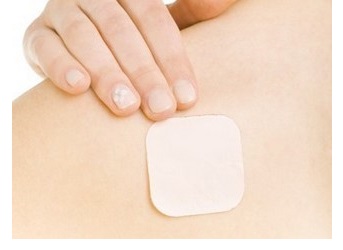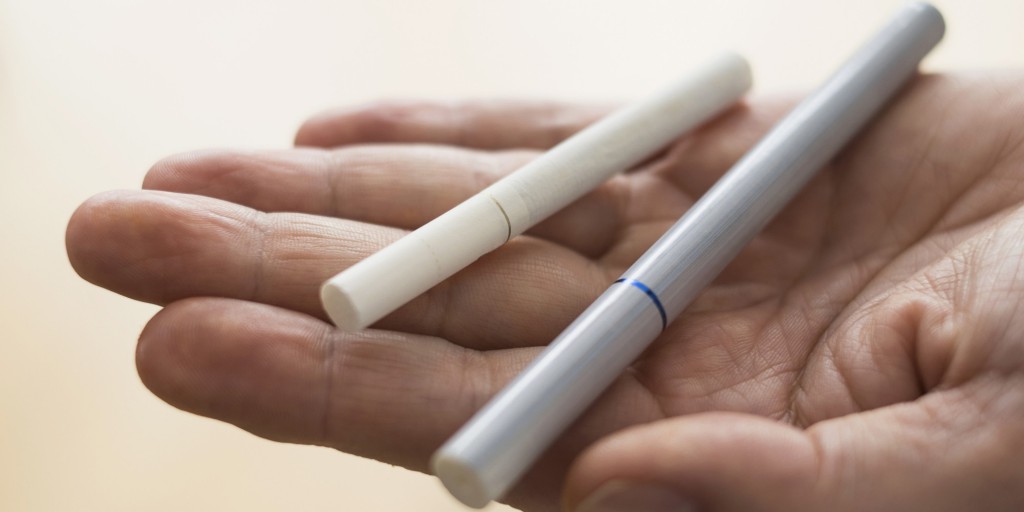How to Beat Nicotine Addiction with Approved Drugs at Canadian Pharmacy?
It is so hard to give up smoking, but that’s worth the effort. In a month your face color will be better, in a year the risk of cardio-vascular diseases will be as twice as lower in comparison with a smoker’s health state. There are three groups of medicines able to raise your chances for success. Some remedies contain small amounts of nicotine, whereas others do not allow taking pleasure of smoking.
 But they all work better if used as a part of a program which includes three main points:
But they all work better if used as a part of a program which includes three main points:
- Decide on the day.
- Think of the methods of dealing with the situations stimulating desire to smoke (stress, parties).
- Visit a doctor. Among medicines there are remedies which are sold without prescription. That is why it is better to consult by a specialist in order to select a proper medicine, find out about its side-effects peculiar for this patient.
Pharmaceutical market offers a number of medicines in order to struggle against nicotine addiction.
They may be divided into four main groups (the sequence of listing corresponds to efficiency indicators)
- Nicotine replacers
- Nicotine blockers (inhibit capacity to take pleasure of smoking)
- Antidepressants (reduce abstinence syndrome)
- Nicotine-containing (contain nicotine in therapeutic dose).
Replacement therapy
 Plasters, inhalers and chewing gums belong to the remedies of nicotine-replacement therapy and are designed to struggle against consequences of smoking cessation – withdrawal state (abstinence) and thirst for taking a cigarette again. All these remedies contain nicotine but in much lesser quantities than cigarette. It gets in organism without tar, carbon oxide and other poisonous substances which are present in tobacco smoke and cause cancer. While using a plaster, nicotine gets into blood through skin, whereas chewing gum and inhaler provide access though mucosa. There is no proof that any element of nicotine-replacement therapy has a better effect than others. These medicines may be combined.
Plasters, inhalers and chewing gums belong to the remedies of nicotine-replacement therapy and are designed to struggle against consequences of smoking cessation – withdrawal state (abstinence) and thirst for taking a cigarette again. All these remedies contain nicotine but in much lesser quantities than cigarette. It gets in organism without tar, carbon oxide and other poisonous substances which are present in tobacco smoke and cause cancer. While using a plaster, nicotine gets into blood through skin, whereas chewing gum and inhaler provide access though mucosa. There is no proof that any element of nicotine-replacement therapy has a better effect than others. These medicines may be combined.
But the main problem of nicotine-replacement therapy lies in the fact that many smokers do not have enough strength and endurance to use these drugs timely and sufficiently for smoking cessation. Most people need from 8 to 12 weeks before they can reduce the medicine dose and then refuse it completely. Nicotine-replacement therapy medications may cause side-effects: skin irritation (in case of plasters), insomnia, bright dreams, gastric disorders and vertigo. They are weakly or moderately pronounced, but in case of severe symptoms medical attendance is required.
Nicotine Blocker
Varenicline doesn’t contain nicotine and was specially designed in order to help people give up smoking. This medicine affects nicotine receptors in brain and during its intake it is impossible to take pleasure of smoking. Varenicline is helpful in struggle against abstinence symptoms and desire. Like bupropione, varenicline is usually prescribed one week before refuse of smoking. Treatment course lasts from three to six months. Potential side-effects include nausea, headache, insomnia, and colorful dreams. During the first days of treatment doctors recommend refusing of driving.
Antidepressants
Bupropione was initially developed for depression treatment, but later it was discovered that it was helpful in smoking cessation. Anyway, the mechanism of its action is not quite known. It is considered that thirst for tobacco decreases due to level enhancement of definite chemical substances in cerebrum. As a rule bupropione is prescribed 1-2 weeks before a person plans to quit smoking. This medicine should not be taken uncontrolled (as in case with all antidepressants), but may be combined with nicotine-replacement therapy. The most widely-spread side-effects are dryness in mouth, insomnia and headache. It is important to know that in rare cases bupropione enhances the risk of fits. Therefore, it is counter-indicative to people suffering from epilepsy, bipolar disorder, alcoholism, hepatocirrhosis and receiving insulin.
Nortriptyline is an antidepressant of earlier generation which is sometimes used in the capacity of remedy for nicotine addiction. It is administered only when other medicines are not effective. Some people have vision impairment, urinary disorders, arrhythmia, and dryness in mouth after nortriptyline intake.
Nicotine or Other Obnoxious Substances Containing Remedies

E-Cigarettes
May E-cigarettes be considered a secure alternative to traditional cigarettes? It is impossible to answer this question. E-cigarettes appeared not so long ago. Their efficiency and safety are under examination and the work is not finished yet. All published research studies are of preliminary character. Electronic cigarettes imitating real cigarettes do not produce smoke, but potentially less obnoxious vapor. Some of them contain nicotine which comes to organism with smoke. But e-cigarettes belong neither to nicotine-replacement therapy, not to medications. This means that controlling organs do not check nicotine content in electronic cigarette. It should be indicated on the label of the cigarette. It was stated that some cigs contain chemical substances. And what is more important – it is still not known whether e-cigarettes are helpful in smoking cessation or not.
Herbal Cigarettes
Cigarettes imitators are created on the base of herbal medicines with various flavor additives. They do not contain nicotine, whereas tars content is not over the limit acting for traditional cigarettes. Do not confuse such cigarettes with herbal bidis – thin cigarettes popular in Asia. They are made of cut leaves of unprocessed tobacco rolled into the leaf of Coromandel ebony and bound by colorful thread. Like other tobacco products, herbal bidis cause nicotine addiction.
Like the smokers of traditional cigarettes, those who use herbal cigarettes receive a lot of obnoxious substances (tars and exhaust products of herbs, carcinogens). Besides they may cause allergy. There is no evidence of efficiency of herbal cigarettes. Nevertheless, it is well-known that the level of carbon monoxide in blood increases the same way as of common cigarettes, pipes or cigars smoking. Besides, American researches discovered that 25% of herbal cigarettes contain psychostimulants.
Drugs for Nicotine Addiction at Canadian Pharmacy
1. The group of nicotine replacers is represented by the most effective anti-smoking tablets. The medicines are very similar to cigarettes. Affecting nicotine receptors of nerve endings, they activate the same mechanism that works during tobacco smoking. All in all, nicotine replacing drugs’ substance resembles tobacco alkaloid molecules due to their chemical composition. These drugs are able to replace its action on human organism. The only disadvantage of these medicines lies in the fact that a substance is replaced by another substance. Because of chemical resemblance with nicotine, tablets cause the same reaction in organism as smoked cigarette.
The most popular representatives of the group:
- Cytisinum;
- Tabex;
- Cytitonum.
2. Nicotine blockers influence particular receptors inhibiting euphoric effect of nicotine. It stops providing pleasure for a person causing misocapny. This group of remedies with analogous mode of action belong many herbal drugs.
- Ceres;
- Tobaccum;
- Corrida Plus
3. Antidepressants affect certain zones of cerebral cortex where the nicotine addiction is developed. They are not very helpful in smoking cessation, but are capable to relieve withdrawal state. More often, they are used in complex with nicotine replacers. They help to deal with stress due to refuse of tobacco smoking. It should be noted that there are medicines for nicotine dependence including one substance similar to nicotine, and the second one – anti-depressant of soft action.
So, these medications are of huge importance
- Zyban;
- Nosnok.
4. Nicotine-containing medications have nicotine in their composition. They are worse than antidepressants, since in essence a person who takes them continues consuming cigarettes but in another form (chewing gum, plaster or spray).
- Niquitin;
- NICOTINE;
- Nicorette;
- Nicotinell.
View more offers for nicotine addiction at Canadian Pharmacy www.canadianhealthmall.com


